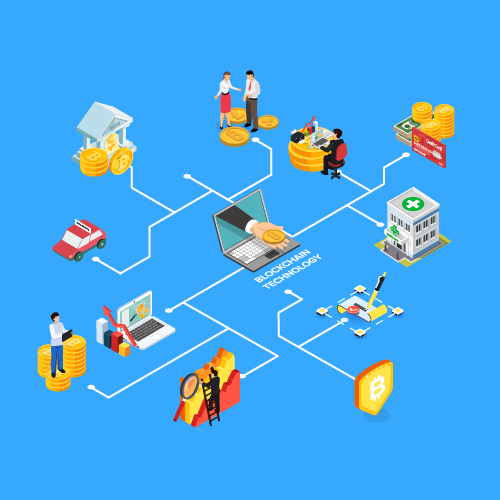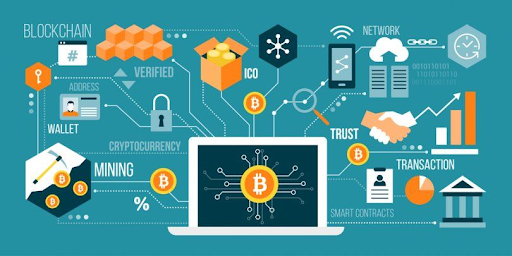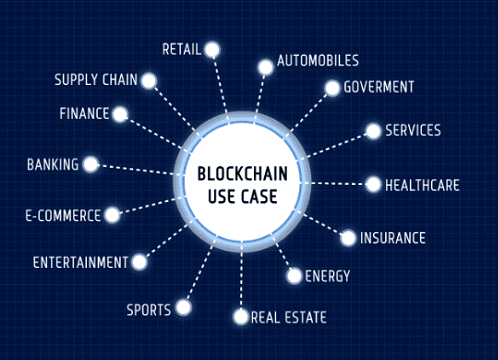Supply Chain Management:

Blockchain supply chain management:
Blockchain can be used to track the origin, quality, and movement of goods across the entire supply chain, from raw materials to finished products. This can help to:
- Improve transparency and accountability: All stakeholders in the supply chain can have access to the same data, which can help to identify and address potential problems early on.
- Reduce fraud and counterfeiting: Blockchain can be used to verify the authenticity of products and ensure that they are not tampered with along the way.
- Improve efficiency: Blockchain can help to automate and streamline supply chain processes, which can lead to significant cost savings and time reductions.
Voting Systems:

Blockchain voting system:
Blockchain can be used to create secure, transparent, and tamper-proof voting systems. This can help to:
- Increase voter turnout: Voters can be confident that their votes will be counted accurately and that their identity will be protected.
- Reduce election fraud: Blockchain can help to prevent voter impersonation, multiple voting, and other forms of election fraud.
- Improve trust in elections: Blockchain can help to increase public trust in the electoral process by providing a transparent and auditable record of all votes.
Digital Identity Verification:

Blockchain digital identity verification:
Blockchain can be used to create a decentralized and secure digital identity system. This can help to:
- Protect users from identity theft and fraud: Blockchain can be used to store personal information in a way that is resistant to tampering and hacking.
- Give users control over their own data: Users can choose who to share their data with and how it is used.
- Enable users to access services more easily: Users can prove their identity without having to provide multiple copies of documentation to different organizations.
Healthcare Records:

Blockchain healthcare records:
Blockchain can be used to create a secure and interoperable healthcare record system. This can help to:
- Improve patient care: Doctors can access a patient’s complete medical history from anywhere in the world, which can lead to more accurate diagnoses and better treatment decisions.
- Reduce costs and errors: Blockchain can help to automate and streamline healthcare processes, which can lead to significant cost savings and reduce the risk of errors.
- Improve patient privacy and security: Blockchain can be used to store and share healthcare data in a secure and encrypted way.
Other Potential Use Cases:
In addition to the use cases mentioned above, blockchain also has the potential to revolutionize many other industries and sectors, including:
- Financial services: Blockchain can be used to develop new financial products and services, such as decentralized exchanges and peer-to-peer lending platforms. It can also be used to improve the efficiency and security of existing financial systems, such as payment processing and fraud detection.
- Intellectual property: Blockchain can be used to protect intellectual property rights, such as copyrights and patents.
- Real estate: Blockchain can be used to streamline real estate transactions and reduce fraud.
- Government: Blockchain can be used to improve the efficiency and transparency of government services.
These are just a few examples of the many potential use cases for blockchain technology. As the technology continues to develop and mature, we can expect to see even more innovative and impactful applications of blockchain in the years to come.
Conclusion:
Blockchain is a powerful technology with the potential to revolutionize many industries and sectors. While it is still a relatively new technology, it is already being used to develop innovative and impactful applications. As blockchain continues to develop and mature, we can expect to see even more widespread adoption and innovation in the years to come.

